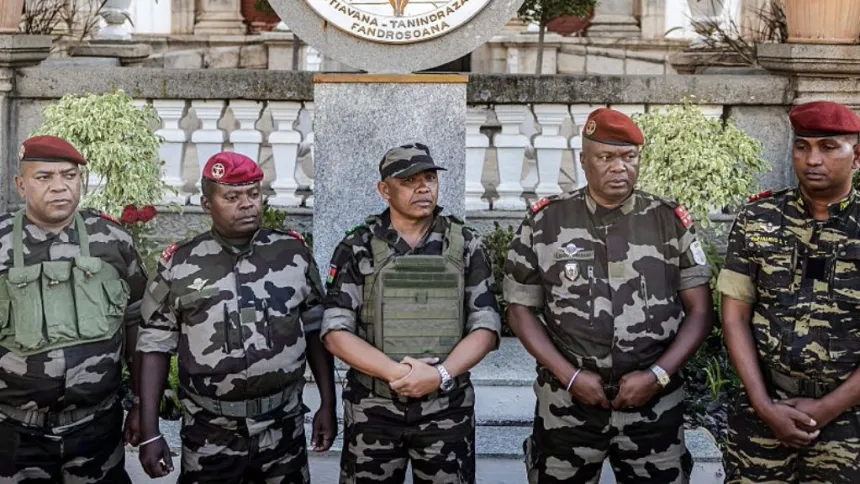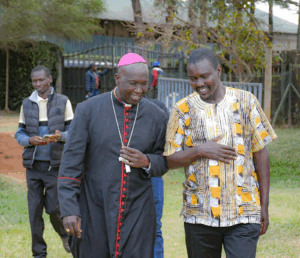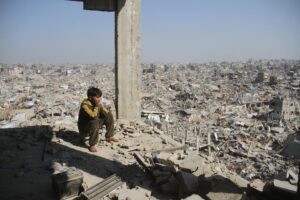Madagascar Military Ousts President Rajoelina Amid Youth Protests
the most powerful military unit in Madagascar, had been a pillar of support for Rajoelina when he seized power in 2009. The unit switched sides with protesters

Col. Randrianirina pointed out that the young protesters, who have spearheaded the recent uprisings, would be the biggest influences in shaping the country's political change. Photo/ Courtesy
By Juliet Jerotich
A senior military force in Madagascar has announced that it has toppled President Andry Rajoelina’s regime following weeks of youth protests that rocked the Indian Ocean nation.
Standing outside the presidential palace on Tuesday, Colonel Michael Randrianina, head of the CAPSAT (Personnel Administration and Technical and Administrative Services Corps), said the army seized the power and would create a transitional government. He promised that new elections would be held in two years and that some key democratic institutions like the electoral commission would be temporarily suspended.
Col. Randrianirina pointed out that the young protesters, who have spearheaded the recent uprisings, would be the biggest influences in shaping the country’s political change. “The revolution started in the streets; we need to respect what they desire,” he said.
Scenes of celebration flooded the capital, Antananarivo, as protesters and soldiers celebrated what appeared to be the ouster of President Rajoelina. Thousands took to the streets wielding national flags in what appeared to be a protest movement victory moment.
CAPSAT, the most powerful military unit in Madagascar, had been a pillar of support for Rajoelina when he seized power in 2009. The unit switched sides with protesters calling for his removal last weekend, however.
Even though Madagascar’s constitutional court has officially sanctioned Col. Randrianina as caretaker president, Rajoelina’s office made a statement that rejects the move and denounces it as an “attempted coup d’état.” The location of the president is not known, although he has claimed he is in a “safe place” following what he described as an assassination attempt by “military officers and politicians.” CAPSAT has refused to make any allegations of conspiracy. Reports, yet to be confirmed, indicate that Rajoelina had escaped the nation on a French military aircraft.
The United States urged all stakeholders to resolve the crisis in a peaceful and constitutional manner. In conversation with the BBC, Col. Randrianirina described Madagascar as “a country in chaos” in reference to there not being an effective president.
The protests had been sparked over two weeks ago by youths’ demonstrations against continuous power and water shortages, which had also evolved into a mass movement protesting against unemployment, corruption and cost of living. At least 22 have died and over 100 injured in clashes between security forces and protesters, UN reports, although such figures are denied by the government.
Rajoelina, once hailed as a young reformer when he became Africa’s youngest leader at 34, has been under mounting criticism for alleged corruption and nepotism, which he has rejected. On Tuesday, lawmakers voted almost unanimously—130 in favor and one blank vote—to impeach him, even as he sought to dissolve parliament in a bid to cling to power. He labeled the impeachment as “null and void.”.
The African Union has warned against any unconstitutional transfer of authority, and French President Emmanuel Macron has described the situation as “deeply concerning.”
Madagascar, politically volatile for decades, remains one of the world’s poorest nations, with three-quarters of its 30 million population living in poverty, according to World Bank data.







